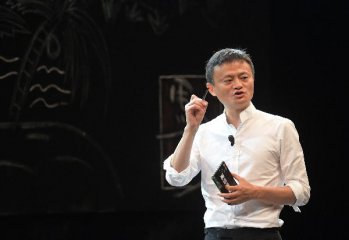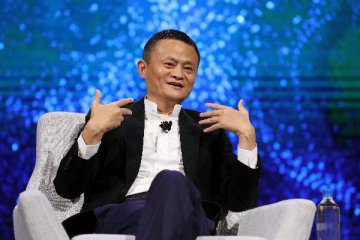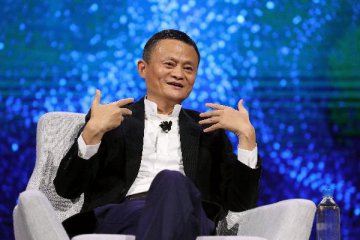
Chinese e-commerce giant Alibaba Group Holding Ltd. BABA 0.70% agreed to take a 10% stake in one of Russia’s biggest tech players—a commercial tie-up that comes as both countries move to strengthen geopolitical bonds.
The stake in Mail.Ru Group Ltd., one of Russia’s earliest and most prominent internet firms, would be worth about $484 million, based on Mail.Ru’s market valuation Monday. The company’s global depositary receipts, traded in London, finished almost 12% higher Tuesday after the deal was disclosed.
The transaction is part of a broader venture, unveiled Tuesday on the sidelines of a China-Russia summit, aimed at creating what Alibaba and its new Russian partners say will be the biggest online-shopping platform in the country.
The investment is modest for Alibaba, and targeted at a relatively small e-commerce market. Still, it represents an unusually high-profile strategic partnership between Chinese and Russian tech giants. Both Alibaba and Mail.Ru have been instrumental in building local alternatives to the Western-built internet, dominated by U.S. tech titans like Facebook Inc. and Amazon.com Inc.
Mail.Ru started out in the late 1990s as a simple email service but has grown to be a colossus of the Russian internet. It owns Russia’s most popular social network, Vkontakte. Through Vkontakte and other social networks and platforms, Mail.Ru claims it reaches 90% of Russia’s internet users at least once each month.
The deal with Alibaba was disclosed in Vladivostok, Russia, as Russian President Vladimir Putin met there with Chinese leader Xi Jinping. Russia and China have recently forged closer geopolitical ties as both countries face mounting antagonism from Washington. Chinese and Russian troops began joint military exercises in Russia’s Far East Tuesday.
The two countries’ economic and commercial relationship has lagged—relegated in large part to Chinese investment in natural-resource plays and purchases of hydrocarbons and other commodities. The tech deal adds a small but significant technology partnership to that mix.
“Russo-Chinese cooperation in tech is one of the most promising avenues for bilateral relations,” said Kirill Dmitriev, head of the state-owned Russian Direct Investment Fund, one of the investors in the new joint venture.
Apart from the geopolitical overtones, the deal represents one of the highest-profile commercial alliances between the separate internet infrastructures—including communication, social media and e-commerce platforms—that have evolved in China and Russia, largely divorced from the West.
Chinese and Russian governments, as well as some local businesses, have often appeared aligned in their view of the globe-spanning internet. Beijing and Moscow recognize it as a powerful commercial and communication tool, but also as a threat to social and political stability. Both capitals ascribe to a similar concept of internet sovereignty, asserting the government’s right to regulate the internet as it sees fit.
Governments in both countries have taken steps to rein it in, for instance, censoring content and controlling access. That has led to a Chinese internet infrastructure largely walled off from the rest of the world and populated by local giants like Alibaba. Russia, too, has tried, with more mixed results, to keep its homegrown social media in check.
Alibaba said it believes its experience expanding to markets outside China could benefit Russia e-commerce companies. The company is “uniquely qualified to help build the future infrastructure of commerce in Russia and neighboring countries,” said Alibaba President Michael Evans in a statement.
E-Commerce penetration in Russia is still around 3%, compared with about 15% in China, providing ample room for growth, according to Mail.Ru Chief Executive Boris Dobrodeev. Western online shopping giants like Amazon and Walmart Inc. have limited presence in Russia, creating opportunities for a local champion, he said.
As part of the deal unveiled Tuesday, Alibaba agreed to take a 48% stake in an e-commerce joint venture to be called AliExpress Russia. The rest of the new company will be held by Mail.Ru, MegaFon, Russia’s second-largest telecommunications firm, and the Russian Direct Investment Fund. Alibaba will receive MegaFon’s existing 10% stake in Mail.Ru as part of the transaction.
The joint venture will provide Alibaba’s 600 million online merchants with access to almost 100 million users of Mail.Ru’s Vkontakte, the partners said. Shareholders said all payments would be processed in Russia, while most of the traded products are likely to be imported from China.
“This is going to create an entire new ecosystem of e-commerce, which will improve the choice and access to products for Russian consumers,” said Mr. Dobrodeev. “In Russia, there’s hasn’t been a big, local e-commerce player. This is going to be the one.”
Source: The Wall Street Journal






















Latest comments